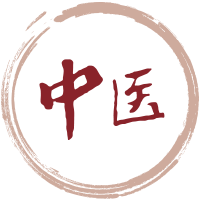
More solution than an antihistamine: How Traditional Chinese Medicine treats allergies
The seasons are changing, the weather is changing, and so are you. For many people, though, this transition is miserable. Seasonal allergies afflict millions of people, causing them to suffer symptoms such as sneezing, running nose, itching eyes, headaches, skin problems, fatigue, and more. At times this reaction can be so severe as to affect personal lives and even job performance.
Is this a lifelong problem, only temporarily relieved by remedies from the drugstore shelf? Or can there be a permanent solution? Traditional Chinese Medicine looks at seasonal allergies in a holistic manner, the same as all other ailments.
Why We Have Allergies
Traditional Chinese Medicine views a person as a small universe, living within and interacting with nature, the large universe. Allergic reactions are triggered by the environment, an external cause; or by one’s own body, an internal cause; or by a combination of both.
Traditional Chinese Medicine sees the external factors being wind, cold, heat, dryness, and dampness. These come from nature, according to the seasons. Spring brings more wind, summer more heat and dampness, autumn more dryness and winter more cold. These factors can invade and affect one’s body. People have ability to adjust to a changing environment. However, if the body’s balance is damaged and we lose the ability to adjust, we cannot follow change. The small universe becomes unbalanced, is not in harmony with the large universe, and disease occurs.
But why do some people have allergies, and others don’t? The same external attack does not affect everyone the same. Some people have stronger immune systems, and are more resistant to outside imbalance (what Traditional Chinese Medicine calls devil energy, or devil Qi). Others have a weakness in the body and are more affected.
Treatment for Allergies
Traditional Chinese Medicine treats allergies by helping the body clean out the problem and balance the internal environment. The patient must be examined to determine how much the symptoms are caused by internal conditions, and how much by external conditions. Then we must decide what we should do according to the patient’s reaction.
Sometimes symptoms indicate dryness or coldness. For example, in autumn when the season
is dry, people with a Yin deficiency tend to suffer allergic reactions. The internal universe has a lack of body fluids while the external has more dryness. The treatment is to help the patient regain Yin balance – create more body fluid – to help deal with the outside environment. This is achieved with acupuncture and Chinese herbs.
Prevention of Allergies
Sometimes people think prevention is taking an antihistamine or getting a shot in the early stages of an allergic reaction. This is not prevention; this is treating the symptoms. While it is possible to quickly relieve allergy symptoms, the problem remains and persistently returns. The best prevention is to bring the body back into balance and eliminate the allergy. This process can take time, and it is good to begin before the season starts. Whenever you begin, though, the goal is to permanently free you from allergic reactions.
Here is a simple exercise you can do to help your lungs. Sit straight, staying relaxed, breathing evenly. Now cross your legs, exhale, bend forward at the waist as much as possible. Using your hands to support yourself, raise your body upright, inhale, then holding your breath for 10 seconds. Repeat this action five times. This exercise not only regulates the qi of the lungs, but helps promote and reinforce the function of the lungs. Try to go outside to exercise frequently. We react to the external conditions, so give your body a chance to get used to the change of seasons. The seasons change gradually, so being outdoors every day gives your body time to adjust.
By Dr. Zhuoling Ren
Photo: FreeImages.com/solsticeart

